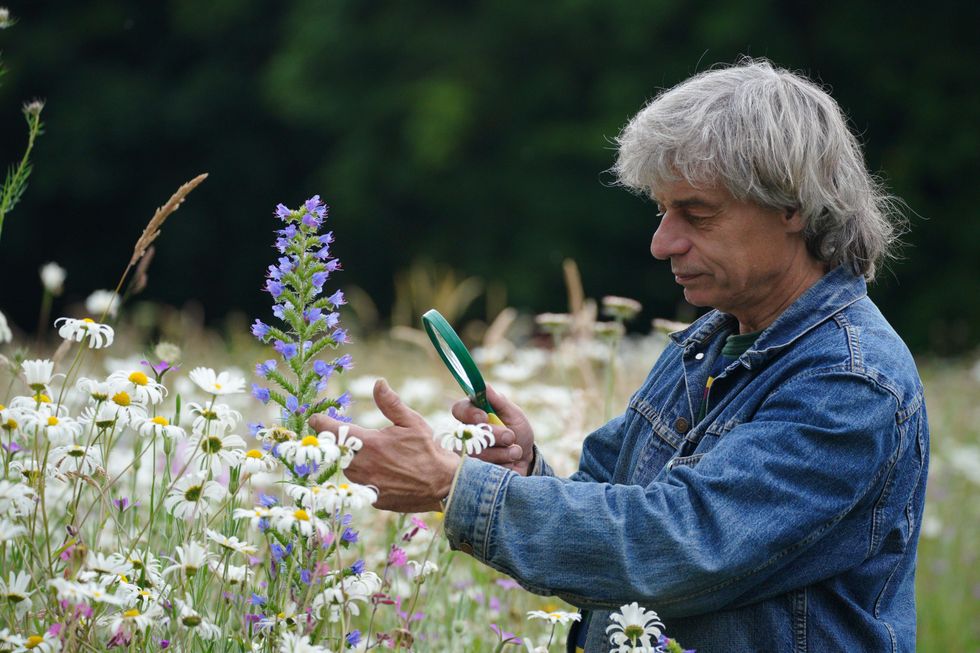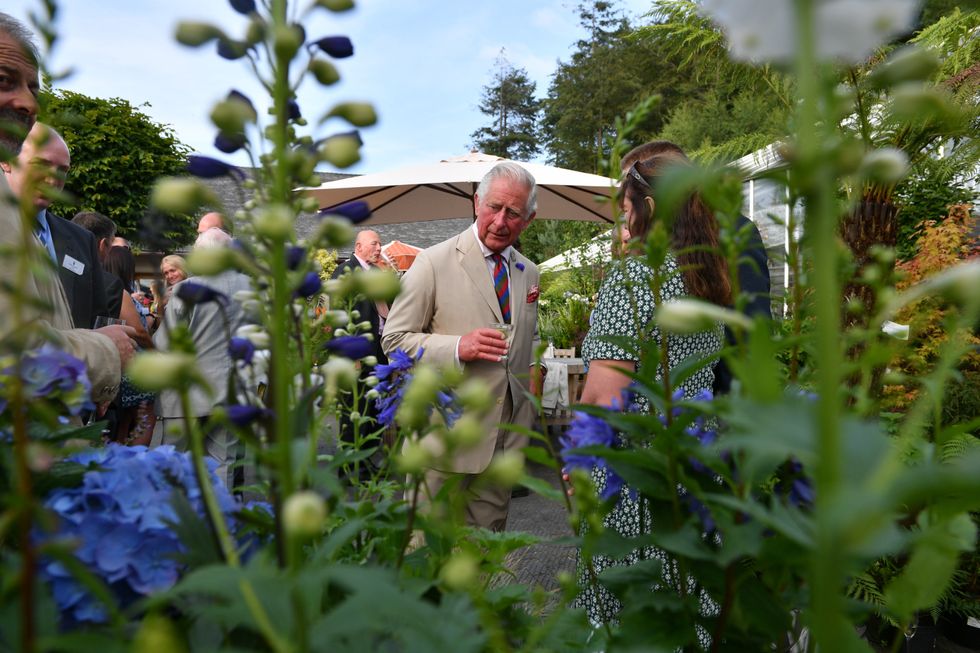
Britons might be tempted to make hay while the sun shines, but in doing so they risk damaging their lawns in the long term.
Unsplash
Britain is basking in sunshine but experts have cautioned to leave the lawn alone
Don't Miss
Most Read
Trending on GB News
A heatwave has hit the UK, bringing with it the temptation to tackle the outdoor to-do list, but garden gurus have implored the public to keep the mower under lock and key.
Britons might be tempted to make hay while the sun shines, but in doing so they risk damaging their lawns in the long term.
Asked whether Britons should hold off mowing, author and gardener, Benjamin Pope said: “Ideally, if you can resist it, because by letting your grass grow a little longer it allows it to cope with the heat stress.”
A head gardener in West Sussex, Pope explained: “It creates a little bit of shade which lowers the surface temperature of the soil itself and that will help with the stress.

Richard Scott, Director of the National Wildflower Centre at the Eden Project
PA
“It also traps a little bit of air around those leaf blades and that raises the microclimate, the humidity around there, and that stops the transpiration of the leaves which again helps with the heat stress.”
Longer grass in hot weather acts as a micro jungle or rainforest, with taller stems helping to sustain a microclimate at soil level.
Pope, who has written the book ‘What to sow, grow and do: A seasonal garden guide’, advises letting your lawn “grow three or four centimetres higher and mowing it every five or six weeks.”
Taking a leaf out of Pope’s book will allow wildflowers and “what some people call weeds” to thrive, such as “clovers, chamomile or speedwell,” which Pope believes to be beneficial.

100 wildflower meadows were created or enhanced in celebration of the Coronation
PA
Pope explained told BBC Radio 5 Live: “They’re far better at actually coping with drought, you need to water it less and you’ll have a bit more green, but you're also supplying a rich nectar source for all these bugs and bees and pollinators that we all hear is so important for the foundation of our biodiversity.”
Should you be stuck for options of what to do with this new-found time on your hands, Pope encourages the public to “enjoy the summer and have a gin and tonic.”
Lawncare expert and director of turf-growing company Rowlawn, Jonathan Hill, concurs with Pope, telling the Mirror that the worst thing green-fingered Brits can do is mow their lawn in a heatwave.
Hill said: “When temperatures rise, mowing can actually cause stress to a lawn so it’s often best to leave your grass to grow a little longer in these conditions.”
 The Met Office has issued multiple thunderstorm warnings as parts of Britain are set to be battered by torrential rain on Monday.Met Office
The Met Office has issued multiple thunderstorm warnings as parts of Britain are set to be battered by torrential rain on Monday.Met OfficeHe added: "To avoid scalping the lawn, the cutting height of your mower should be increased during dry conditions.
“A higher setting will allow valuable moisture to be trapped, limiting evaporation and encouraging stronger, deeper roots to grow, which improves drought tolerance overall.
"We often recommend that, during drought or particularly dry conditions, gardeners don't mow their lawns. Survival is more likely in a heatwave if you don't mow at all."
The Met Office has issued multiple thunderstorm warnings as parts of Britain are set to be battered by torrential rain on Monday.
The warnings cover large parts of England including London, Oxford, Nottingham and Manchester.







